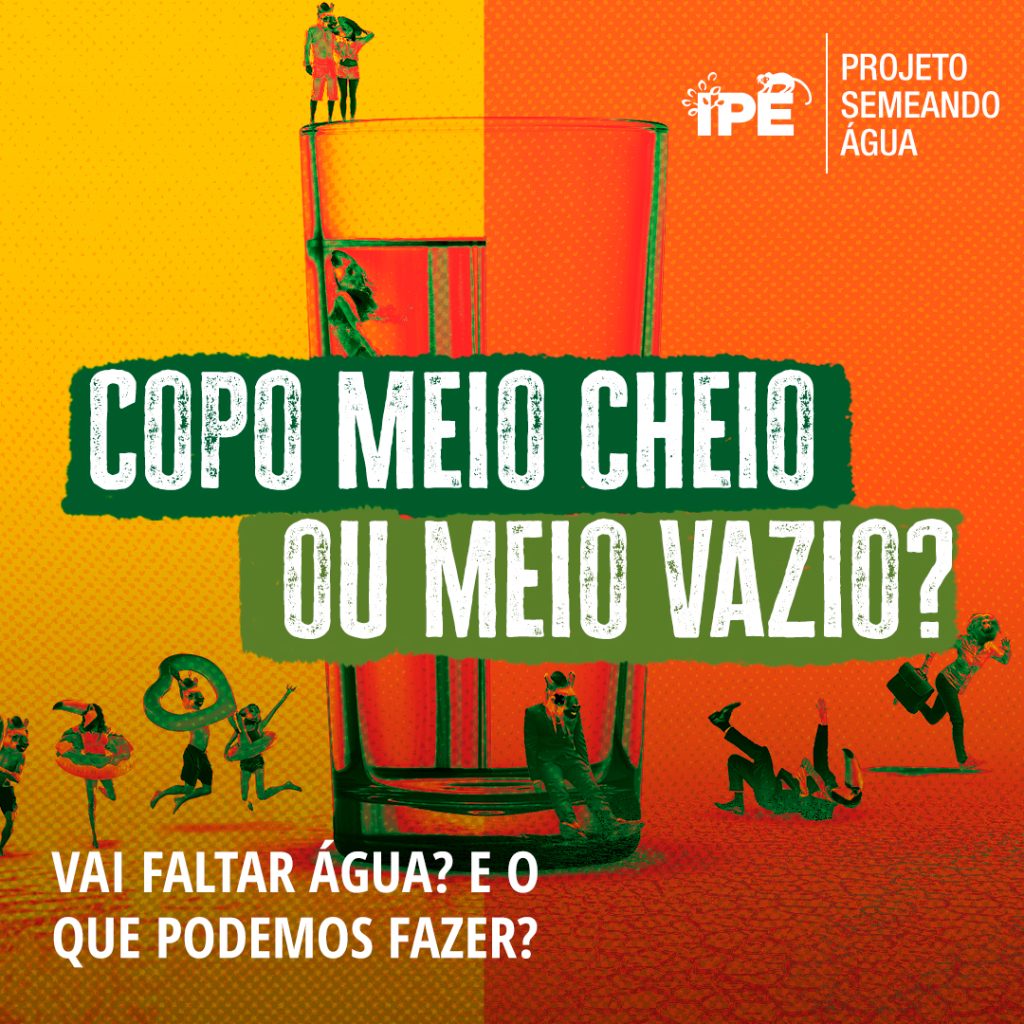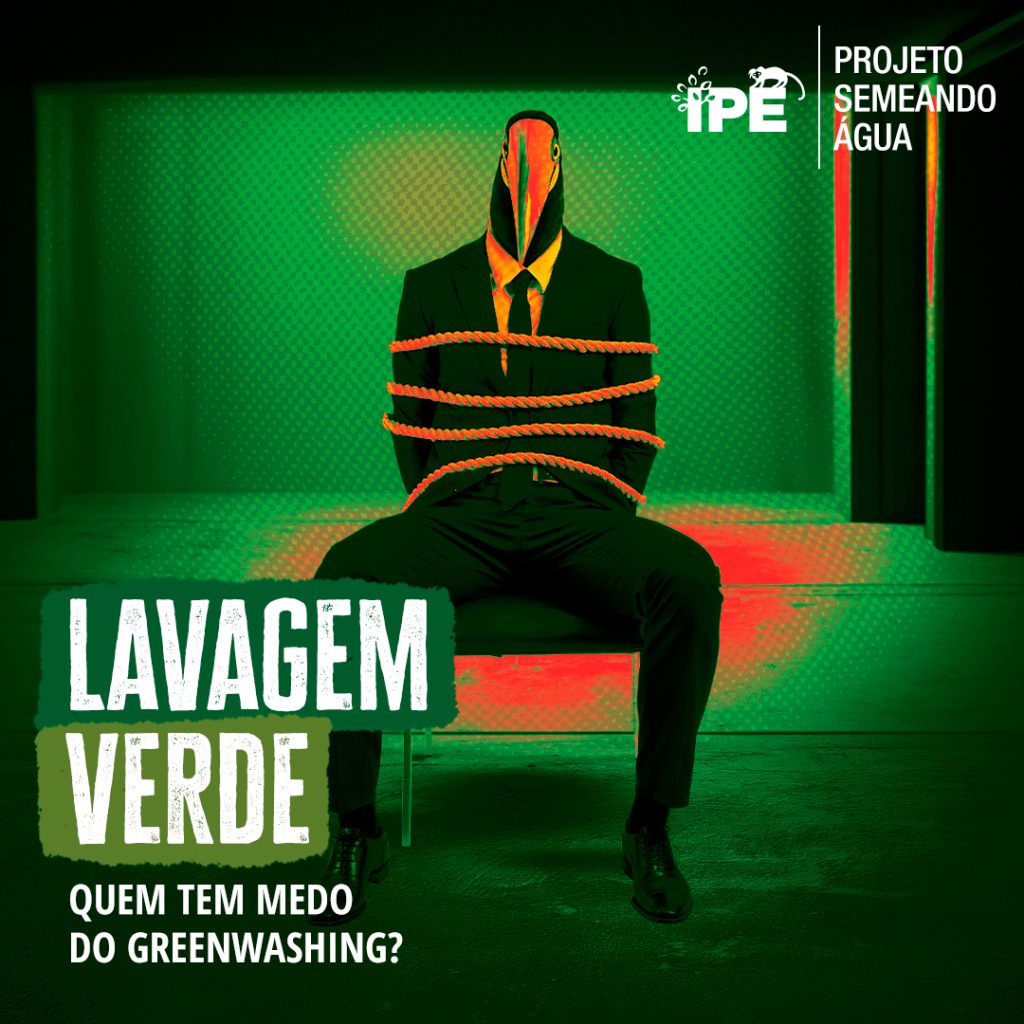How to transform everyday conversations into an agenda for those who are not impacted by the issues covered by the brand in their work focus.

Context
Considered one of the largest Civil Society Organizations in Brazil, the Ipê Institute has been developing research, environmental education projects and income generation programs since 1992. The objective is, through these initiatives, to disseminate conservation practices for Brazilian biomes.
The communication projects developed for Ipê at two different times have the same question in common: how to break through the bubble of experts or supporters of sustainability issues and reach the space of everyday conversations on the topic of environmental preservation? The need for an uncomplicated and, at the same time, informative approach for an audience not made up of specialists was the main driver for
putting into practice the media plans that will be presented.
What conversations does the brand engage in?
Decimal by decimal, the planet’s temperature rises with signs that it will no longer fall. The heat wave, whether at the peak of summer in the northern hemisphere, or in summers than now take place in the middle of winter in the southern hemisphere, namely Brazil, is a symptom of a definitive diagnosis: climate change is a reality that is already advanced and felt in different proportions for the different profiles spread around the world.
And speaking of Brazil, deforestation in the Amazon region, which already accounts for 23% of the country’s existing area, is advancing as global demand for commodities encourages agribusiness to clear new areas for pastures and crops.
This astonishing scenario is already known by opinion makers, the media and people who are directly linked to sustainability issues, whether for work, study or some other specific interest. But the fact is that for the general population, the issue only comes up when a disaster on the scale of the rains that devastated Rio Grande do Sul and regions of Rio de Janeiro make the news and mobilizes WhatsApp groups to send humanitarian aid.
So, the challenge is to adjust the communication lens and focus on those who don’t talk as much about the impacts of climate change as they do about the election results, the dollar exchange rate, the soccer championship final or the next Big Brother Brasil eviction.

“Send a ZAP”
It is known that Brazilians use WhatsApp to a point rarely seen elsewhere in the world. We are the second country that most uses the messaging app, installed on 99% of Brazilian online devices, according to Statista. We were recently recognized on video by Mark Zuckerberg himself for having transformed “zap zap” into something characteristic of our culture – here we send four times more audio messages than anywhere else.
In every romance, however, there is a downside and in our case with WhatsApp, fake news really contaminates this relationship. Fake news and questionable information spread across groups and compromise people’s understanding of health, politics and the environment. It is a very organized opposing force with great spread power, which uses the right language to penetrate its audience.
It is therefore the role of communications to pop this bubble and disseminate real facts about the consequences of climate change. To do this, it is necessary to target the problem and adapt the language. This is what Ipê did, in partnership with Talquimy, in its “Semeando Água” (Sowing Water) project, which promotes actions with the potential to guarantee water security in the Cantareira System, which supplies water to 7.6 million people in the Metropolitan Region of São Paulo.
The project’s actions range from reforestation to training rural producers for sustainable and more profitable cultivation. Now, water waste is also a threat to water security. Therefore, another fundamental action is to raise awareness among the population about water waste. “Infiltrados” (Infiltrators) was then created, a second project within Semeando Água to disseminate information via WhatsApp.



*Different content formats were used with potential influencers on four main themes: water path, sowing water, Cantareira production and impact of scarcity.
Reached by media campaigns on social networks, potential influencers were key to disseminating simplified information about how shortages are felt by the population in practice. The problem of lack of water was addressed here in a language suitable for WhatsApp, with short, educational videos and memes and internet personality tests.
*Trailer of the What Climate is this? Ipê Institute podcast
The “What Climate is This?” podcast is another Ipê environmental education initiative. There are 19 episodes with experts and technicians who explain the consequences of climate change on Brazilian health, mobility and personal finances. And this complex subject was literally taken to an elevator speech.





*Static advertising pieces were developed in four versions: for Instagram feed, LinkedIn feed, YouTube covers and covers for the platforms that host the podcast
To publicize the podcast, the central objective of this communication, the project focused on creating content set in an elevator conversation but conducted by human-animal hybrids. This creative concept resulted in pieces promoting the episodes on social media, animations with questions about the environment and teasers with excerpts from the episodes.
*In this capsule released on social media, an expert explains the influence ofreforestation on curbing climate change
Result
It’ important to routinely talk about climate change because we are all losing. We are losing health, projections from the scientific medical journal The Lancet indicate that by 2050, almost five times as many people could die in the world because of extreme heat. Infectious diseases also increase with irregular rainfall and increased temperatures. Dengue transmission could increase by 36% with global warming of just 2°C.
We are missing opportunities for economic growth. A survey by EY consultancy with C-level executives from three countries found that 47% of agribusiness investors would reconsider the investment according to climate risks.
Climate change will intensify in volume and frequency. Amidst not very optimistic prognoses, the adjustment of focus is precisely on putting the issue in the mouth of the people so that the effects of this crisis that has no time to end, are less tragic.
In the case of the Infiltrados project for WhatsApp, the more than 600 people engaged through the chat app and impacted an estimate of over 13,000 people with organic forwarding of messages about preservation.
Meanwhile, in the Que Clima é Esse? elevator conversations, more than 4,700 people clicked on the links to listen to the podcast episodes. And here is a curious observation: among the most accessed on social media is an episode entitled: “Soft water on hard ground…”